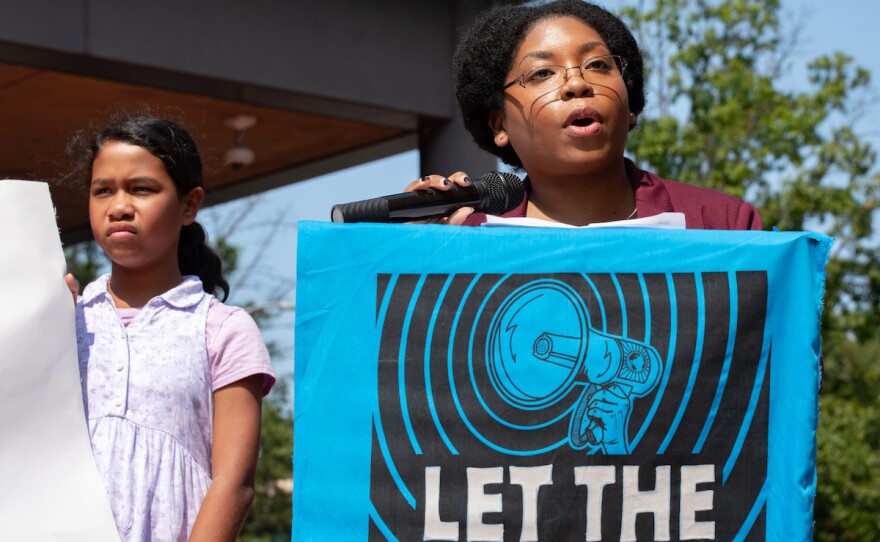A lawsuit brought by 13 young people against the state of Virginia for past and ongoing permitting of fossil fuel projects was dismissed by Richmond Circuit Court Judge Clarence N. Jenkins on Friday.
In Layla H. v. Commonwealth of Virginia, the young people were represented by attorneys from Our Children’s Trust, which litigates similar cases nationwide. They argued the fossil fuel projects emit dangerous levels of greenhouse gas pollution, which “causes and contributes to the ongoing climate crisis and causes grave harm” to the plaintiffs.
Layla Hasanzadah, the George Mason University freshman whose name titles the case, said she got involved in the suit because climate change affected her family. According to the suit, Hasanzadah’s family home was extensively damaged by flooding from an extreme precipitation event.
“[Do] I know that my future is secured, let alone my kid’s future or their kid’s future? No,” Hasanzadah told VPM News following the hearing.
Richmonder Amaya, a plaintiff who was 13 when the suit was filed, has asthma that requires a twice-daily inhaler. The suit alleges that the increasing number of dangerously hot days during Richmond summers severely limits her ability to participate in physical activities. Amaya and her family also monitor local air quality to avoid asthma attacks.
VPM News is not using her full name, because Amaya is a minor.
Nate Bellinger, senior staff attorney at OTC, argued the emissions that result from those state permits threaten the life and liberty for the young plaintiffs, both of which are protected under the due process clause of the state constitution’s bill of rights. The clause states: “That no person shall be deprived of his life, liberty, or property without due process of law.” Bellinger also argued that the state constitution protects the right to clean air.
The state relied on arguing sovereign immunity — a wide-ranging legal doctrine that, under state law, protects the commonwealth from being held accountable for causing damage or harm to an individual. There are some exceptions to the rule, including for “self-executing rights” or rights that have already been clearly granted by law and don’t require any additional legislative protection.
Specifically, Assistant Attorney General Thomas Sanford argued that the due process clause is not one of those exceptions to sovereign immunity.
The judge agreed and dismissed the case before hearing it on its merits.
In a press conference after the hearing, Bellinger and the plaintiffs said the decision will be appealed, but the attorney said he’s concerned about the precedent set by the judge’s decision.
“The judge said in Virginia, you do not — not just these plaintiffs, but nobody has a right to bring a case to court arguing that your most fundamental rights to life and liberty are being violated [by the state],” Bellinger said outside the John Marshall Court along Broad Street.
Hasanzadah said the decision was discouraging: A “few tears were pricked, that’s for sure.” But she remains hopeful.
“The more people know about this and our motives and our plans, and even just the exigence of this entire situation, the more information will be spread and the more people will be rallying behind us to finally, finally achieve justice,” Hasanzadah said.
The appeal is set to be filed in the state’s Court of Appeals.
Victoria LaCivita, spokesperson for Attorney General Jason Miyares, said in a statement that “the Attorney General is pleased with the Court’s decision today to dismiss the lawsuit.”
LaCivita and a representative of Gov. Glenn Youngkin did not comment on the case’s impact on Virginia’s due process clause.
Disclosure: A plaintiff in this lawsuit is related to a VPM News staff member. That employee was not involved in the reporting or editing of this story.



